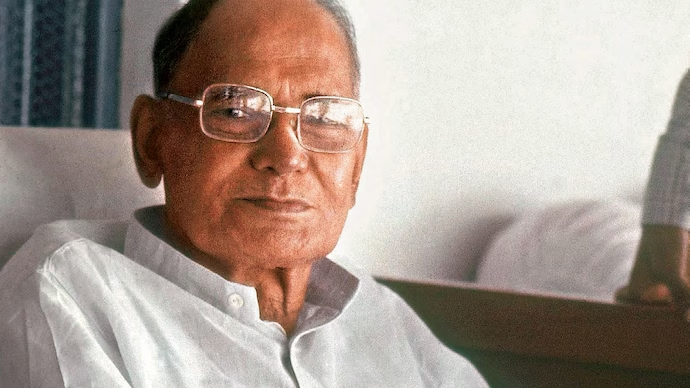Font size:
Print
Jai Prakash Narayan
Context:
45th Death Anniversary of Jai Prakash Narayan.
About:
- Jai Prakash Narayan, commonly known as JP or Lok Nayak (People’s Leader), was a significant figure in India’s struggle for independence and played a crucial role in the country’s post-independence political landscape.
- Born on October 11, 1902, in Sitab Diyara, Bihar, he was deeply influenced by Gandhian principles and socialist ideas throughout his life.

Contribution to India’s Freedom Movement:
- Early Involvement: JP’s political activism began during his student years, where he was influenced by Mahatma Gandhi’s non-violent approach.
- He participated in the Non-Cooperation Movement (1920-22) and later returned to India in 1929 after studying in the United States, where he had been exposed to Marxist thought125.
- Civil Disobedience Movement: Narayan played an active role in the Civil Disobedience Movement and was imprisoned multiple times for his activities against British rule.
- Notably, he was arrested in 1932 for his participation in the movement and again in 1939 for opposing Indian involvement in World War II.
- His leadership became particularly prominent during the Quit India Movement of 1942, where he organised underground resistance activities after escaping from prison.
- Socialist Ideals: As a founding member of the Congress Socialist Party, Narayan advocated for a more radical approach to achieving independence. He emphasised social justice and economic equality, drawing on socialist principles to address the needs of the marginalised.
Role in Post-Independence History:
- Total Revolution Movement: After India gained independence in 1947, Narayan focused on social reform.
- In the 1970s, he initiated the Total Revolution (Sampoorna Kranti) movement, calling for comprehensive changes across political, social, and economic spheres.
- This movement arose from widespread discontent with corruption and governance issues under Prime Minister Indira Gandhi.
- Bihar Movement: In 1974, JP led the Bihar Movement, which aimed to challenge corruption within the state government. This grassroots movement mobilised students and citizens alike against malpractices and called for accountability from political leaders. His leadership during this period positioned him as a key opposition figure against authoritarianism.
- Political Legacy: Narayan’s activism culminated in the formation of the Janata Party, which united various opposition factions against Indira Gandhi’s government.
- The Janata Party won the 1977 elections, marking the first non-Congress government at the national level.
Subscribe to our Youtube Channel for more Valuable Content – TheStudyias
Download the App to Subscribe to our Courses – Thestudyias
The Source’s Authority and Ownership of the Article is Claimed By THE STUDY IAS BY MANIKANT SINGH




